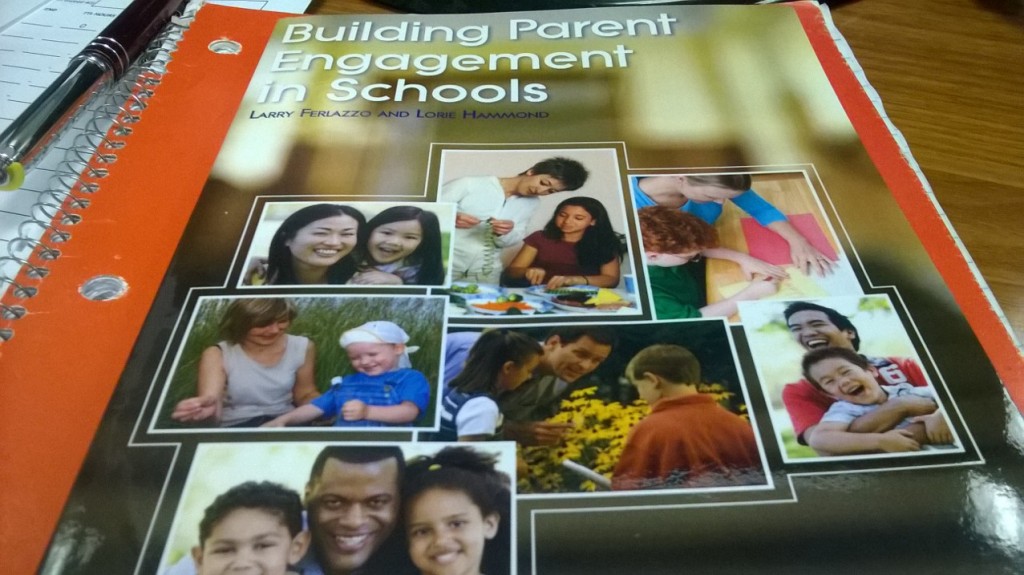
Larry Ferlazzo is a teacher, blogger, and expert on parental engagement in education. He is also very active on Twitter and is the go to resource for the latest in Parental Engagement. Make sure and add him to your personal learning network.
Ferlazzo’s book, Building Parent Engagement in Schools, is a great reference resource and primer for parental engagement. Though it’s a relatively short book, it features chapter-long overviews packed full of excellent real-world parental engagement projects which support Ferlazzo’s claim that “parent involvement may provide opportunities to enhance student achievement, but parent engagement might provide superior opportunities.” (pg. 3)
To clarify the difference between parental involvement and parental engagement, he writes:
When schools engage parents they are leading with their institutional self-interest and wants – school staff are leading with their mouths. When schools engage parents they are leading with the parents’ self-interests (their wants and dreams) in an effort to develop a genuine partnership – school staff are leading with their ears. (pg. 4)
In Chapter 2, he describes the power of home visits. When describing the role of parents in these visits, he quotes James Keddy from PICO who says that “it’s a shift in how parents see themselves.” Parents seem themselves as “”an asset” in their child’s life, in the local school, and in the larger community. (pg. 23) Ferlazzo stresses that the purpose of these visits is to build a relationship. He quotes Fred Rose, an organizer with the Pioneer Valley Project in Massachusetts who says it’s important to “put the relationship-building first. If you build the relationships you can work on the academic and work on the other issues and concerns as they come up.” (pg. 24)
One of the things I most liked about the book was the emphasis on local institutions of democracy: family, community, school, church – all institutions that support our great civil society.
Parental engagement in a school must be based on an understanding of the needs, priorities, and funds of knowledge of the families and communities involved in that school. In short, to work successfully with families, it is necessary to begin by understanding their cultural priorities. (pg. 44)
You can read more insights from Larry Ferlazzo regarding parental engagement on his blog and be sure to check out his curated lists of resources, the Best Of Lists.